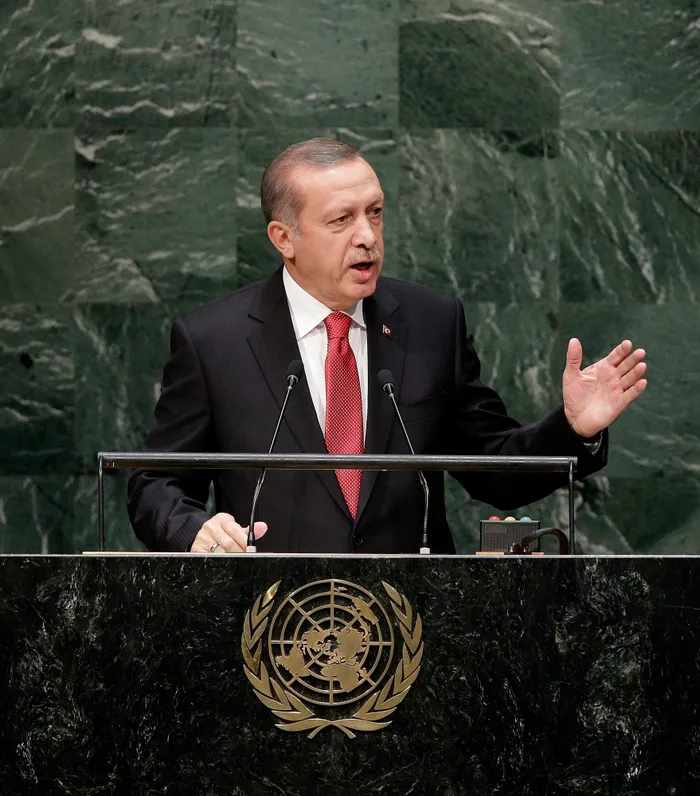Aid and trade equals political clout in Africa

By Michael B Bishku
While Turkish politicians claim that Turkey has no imperial past, its predecessor state, the Ottoman Empire, colonised territories in North Africa and the Horn of Africa and attempted to participate in the European political partition of the continent during the late 19th century.
From 1923 until the end of the Cold War, the Republic of Turkey paid little attention to the continent of Africa, save perhaps for the states of North Africa, where it offered diplomatic support to independence movements there and developed close relations.
Turkey also favoured the process of European decolonisation and opposed the system of apartheid in South Africa, in contrast to some conservative regimes in the Muslim Middle East which had either formal or informal political and/or economic contacts with white-ruled South Africa.
However, especially with its perceived rejection of membership in the EU, Turkey has sought increasing influence and trade connections with countries in Africa (and Asia). This process has been accentuated by the coming to power of the Islamist Justice and Development (AK) Party in 2002, which seeks to emphasise its connections with countries in the Global South, especially those with Muslim populations.
The AK Party’s leader, Recep Tayyip Erdoğan, first as prime minister and later as president, has visited more countries on the African continent than any non-African leader.
Accompanying him on these trips have been large entourages, including businesspeople interested in either establishing or expanding operations in Africa. Those operations have included purchasing raw materials, setting up on-site businesses, including those jointly operated with African partners, and headquarters for distribution elsewhere on the continent as well as providing technical assistance.
Free-trade agreements with Egypt, Morocco, Sudan, Tunisia and Mauritius have facilitated this process; there are continuing negotiations with Cameroon, Chad, the Democratic Republic of the Congo, Djibouti, Somalia and Seychelles.
Turkey has participated in UN peacekeeping operations in Africa, while its military assistance in Libya has brought it into rivalry with the United Arab Emirates, and similar moves in the countries of the Sahel region have irritated France.
Furthermore, Turkey has sold drones to Ethiopia and Morocco, countries engaged in armed conflicts with the Tigrayans and Sahrawis, respectively. In the case of Somalia, which is fighting against the al-Qaeda-affiliated al-Shabaab, in addition to co-operating with international efforts in maritime security, Turkey is providing military training and infrastructure as well as humanitarian aid. In the latter endeavour, there has been co-operation with NGOs, including those with an Islamic religious agenda.
The Turkish Co-operation and Co-ordination Agency, part of Turkey’s Ministry of Culture and Tourism, has been instrumental in providing technical assistance in such areas of agriculture, health, finance, tourism and industry with offices and operations in more than 20 countries in Africa.
Its cultural restoration projects most often have an Islamic and/ or Turkish connection. Also, before Erdoğan had a falling out with the Gulenists, that group established schools in Africa with excellent reputations.
However, since the failed coup in July 2016, for which Erdoğan’s government blamed that group, Turkey has strongly pressured many African countries to close down those schools and allow those of the Maarif Foundation to take their place in addition to extraditing Gulenists to Turkey.
These attempts have had a temporary negative impact upon relations with some countries in Africa. Turkey, a member of the Western alliance through Nato, has co-operated with Russia to export grain from Ukraine, upon which many African countries are heavily dependent.
While Turkey is a middle power nation and does not have the resources of larger powers, it has provided needed assistance to African states, but at the same time, just like those other countries involved in African affairs, it seeks political influence, is interested in acquiring raw materials and its businesspeople want to make profits.
Bishku is a Professor of History at Augusta University in Georgia in the US